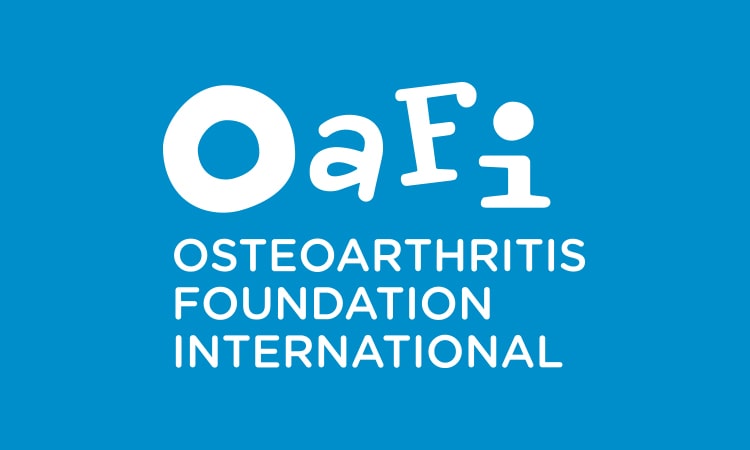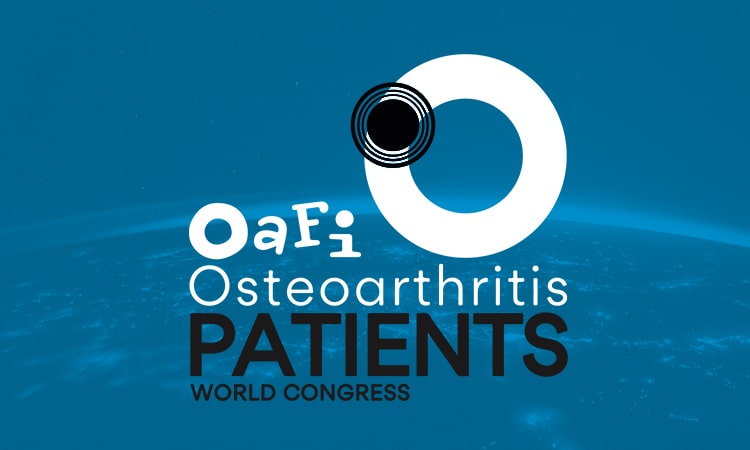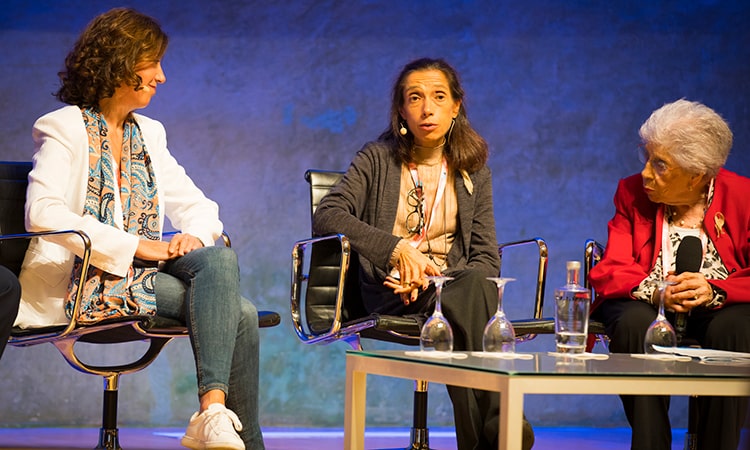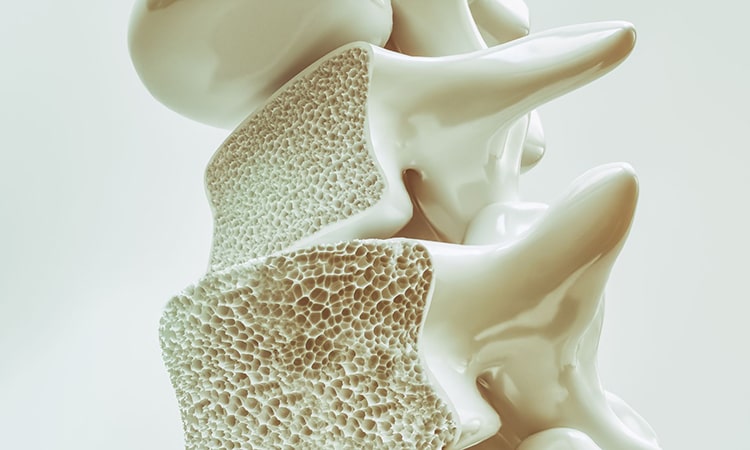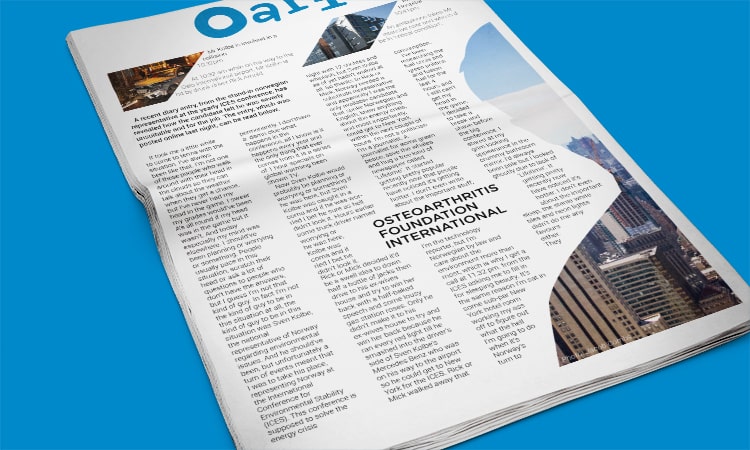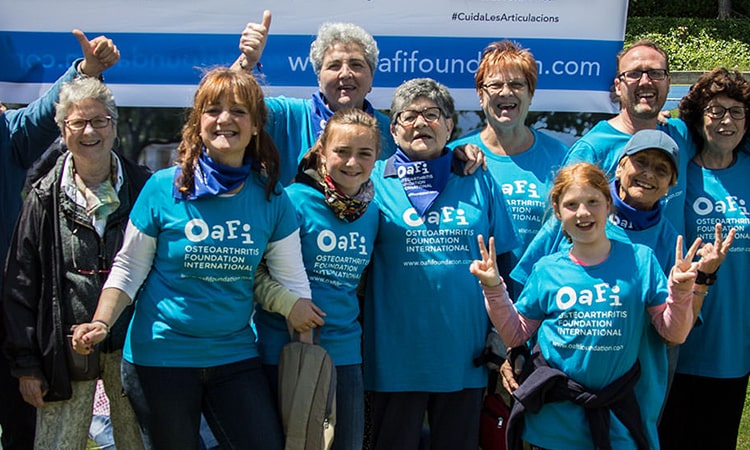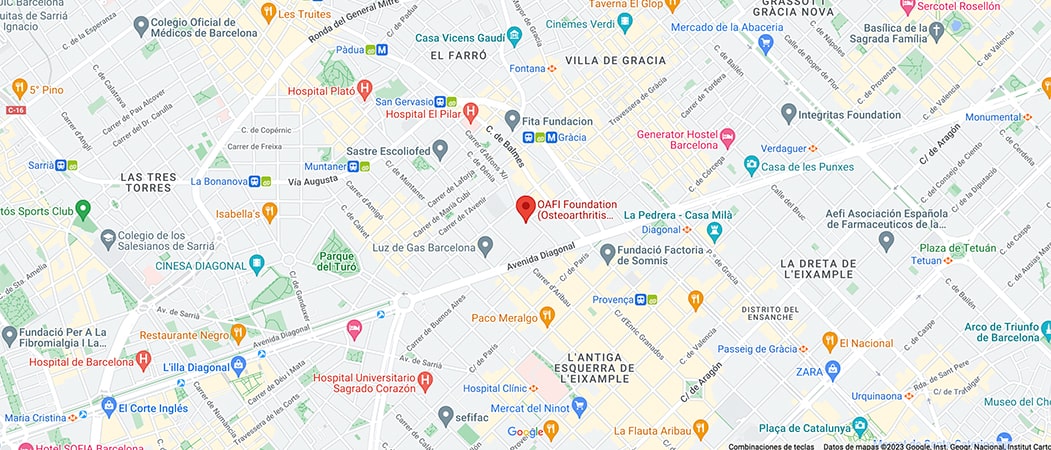- Foundation
- Actions
- Osteoarthritis
- Osteoporosis
- Actuality
- OAFI Radio/TV
- Get Involved
- Contact
-
-
-
OAFI
Osteoarthritis International FoundationC/ Tuset, 19 · 3º 2ª
08006 Barcelona
(+34) 931 594 015
info@oafifoundation.comSchedule:
Monday-Thursday 9AM-6PM
Friday 8AM-3PM
-
-
-

-

-

OAFI RADIO: DYSPHAGIA, SARCOPENIA AND NUTRITION
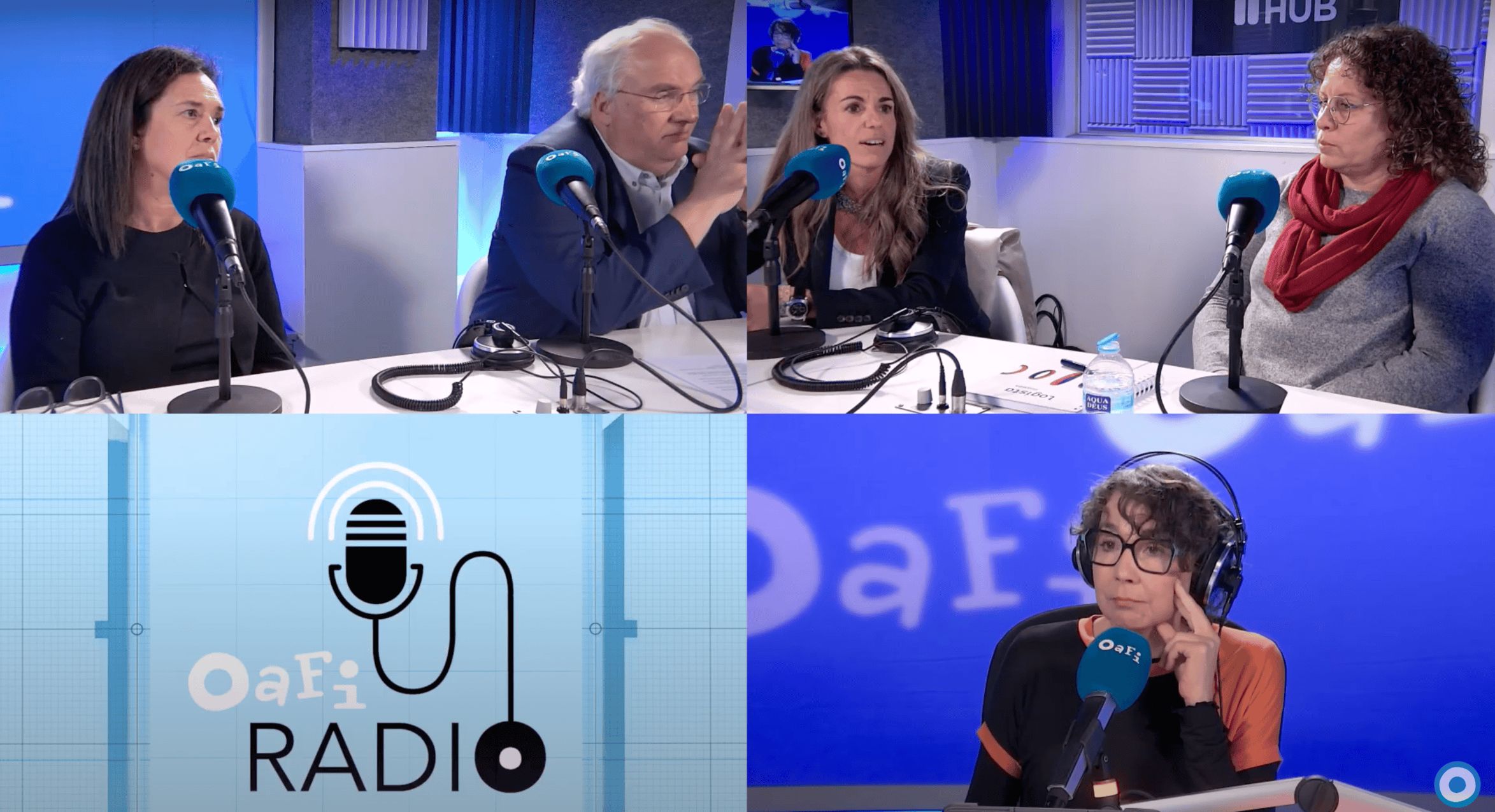
In last Monday’s show of OAFI RADIO discusses how nutrition can help in cases of dysphagia and sarcopenia, presenting testimonials from patients and experts. The importance of modified textures and safe nutritional products to improve quality of life is highlighted. In addition, the need for socialization and the impact of proper diet on bone and muscle health are addressed.
We explore dysphagia and what nutritional alternatives exist to anticipate or manage this pathology, such as modified textures, with Natàlia Talleda, speech therapist and occupational therapist, and Patricia Sanz, Campofrío Food Group, as well as the testimony of Susana. In addition, together with nutritionist Antonela Bávaro, we learn how food can help us to strengthen muscles and prevent or improve pathologies such as sarcopenia.
Dysphagia is common in elderly and neurological patients, but is often underdiagnosed.
It is estimated that 90% of patients with advanced neurological diseases suffer from dysphagia.
Only 10% of people with dysphagia in Spain are diagnosed and adequately treated.
Many people normalize coughing when eating, which complicates diagnosis.
There is a lack of awareness and training about dysphagia in the medical field.
Nutrition is fundamental not only for physical health, but also for socialization and emotional well-being.
Nutrition helps prevent dehydration, malnutrition and sarcopenia.
It is important that food products are nutritious, safe and palatable.
The aim is to facilitate access to these products in supermarkets and pharmacies to improve people’s quality of life.
The texture and presentation of food are crucial to stimulate appetite and encourage intake.
OAFI RADIO presents the creation of a website to distribute food products for people with specific needs.
A project was launched to offer food solutions to hospitals and nursing homes.
The initiative responds to a market need due to the aging population.
It seeks to provide safe and tasty products to improve the quality of life of the elderly.
Nutrition and vitamins are key to prevent the development of sarcopenia and maintain muscle mass
Vitamins A, C, K and D are essential for the absorption of nutrients such as calcium and collagen.
An intake of 0.8 to 1.0 g of protein per kilogram of body weight is recommended to maintain muscle function in older adults.
To increase muscle mass, an intake of 1.8 to 2.0 g of protein per kilogram of body weight is suggested.
You can access all our health content on OAFI RADIO in our Youtube Channel.
Don’t miss it!
